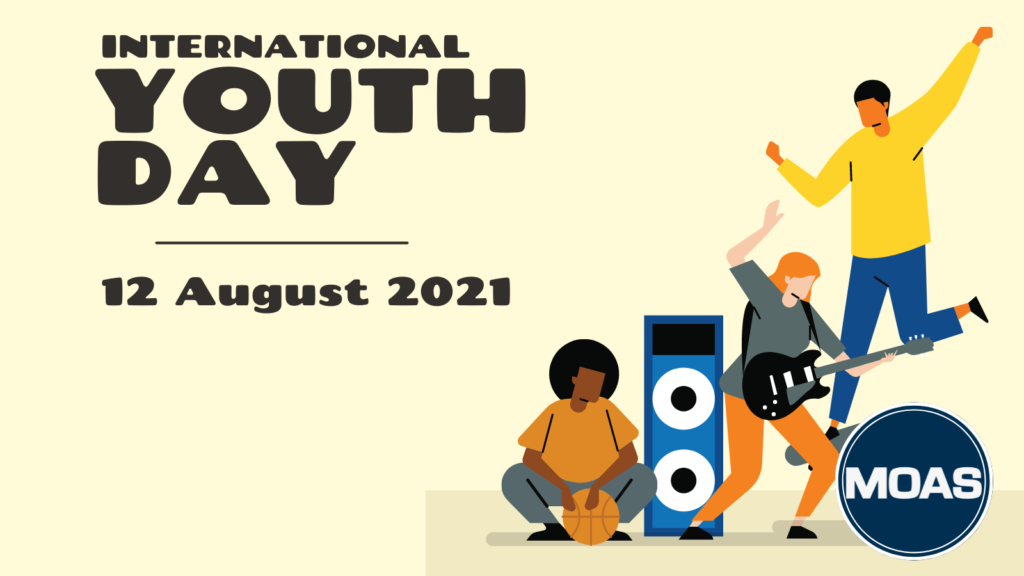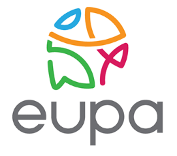International Youth Day was established by the United Nations General Assembly in December 1999 and it is celebrated annually on August 12th. This day is an extremely important occasion to centralise issues impacting young people, within the international community. This is because amplifying youth’s voices, actions and initiatives is a fundamental step to demonstrate their potential in the future development and innovation of our societies.
As we approach the celebrations for 2021 International Youth Day, we want to emphasise the importance of ensuring access to education for all children and young people around the globe, with special attention on asylum seeker and refugees who, unfortunately, continue to face barriers in accessing education systems within their host communities.
With the ever-increasing number of people arriving in European member states, European societies are becoming progressively more diverse. Therefore, the EU not only has to find a way to manage migration flows, but also to promote policies to integrate third country nationals into their societies and provide inclusive education systems for all. There are unprecedented numbers of people who have been forced to flee their homes, putting huge pressure on education systems in host nations. However, as the Director-General of UNESCO Irina Bokova, said: “for these children and youth, education is especially important: by simply being in school, they are better protected from trafficking, illegal adoption, child marriage, sexual exploitation and forced labour”.
Education as a basic need for refugees
Education is a fundamental human right and every child, boy or girl, in every country he/she resides in, is entitled to such an important right. Proper education is vital to people as it helps them acquire and learn new skills, build confidence and think critically, and access greater opportunities in life. Education is the most powerful tool for integration and cohesion, yet, for the millions of children forced to flee their countries due to conflict, persecution, violence or human rights violations, access to education is unattainable. These include overcrowded classes in host countries, language barriers and the intrinsic psychosocial impacts of conflict, persecution and complex migration journeys.
As the European Commission stated: “education plays a crucial role in guiding refugees and other migrants from third countries in adapting to a new country and culture, as well as in establishing social relations within their host communities”. However, the amount of migrants who cannot attend schools is alarming: according to the UNHCR – the UN Refugee Agency, only 50% of refugee children have access to primary school, only 22% of refugee adolescents have access to lower secondary education and only 1% of refugees attend university.
The European Union and barriers to access to education
The fundamental right to basic education is recognised under international and regional human rights law, which includes EU law. The European Union acknowledges and recognises the role education has for the integration of migrants and third country nationals into European societies. With the aim of becoming a more prosperous, cohesive and inclusive Union, it has invested resources and efforts to integrate migrants in its education and training systems, from early childhood to higher education.
Through the Action Plan on the integration of third country nationals, the European Commission has identified key priorities to promote education for migrants among which is the need for immediate integration of newly arrived migrants into national education structures. To reach these priorities, European member states are encouraged to equip teachers and school staff with the skills needed to manage diversity and promote the recruitment of teachers with a migrant background. Furthermore, the European Commission has committed to providing language assessment and learning for newly arrived third county nationals, in addition to supporting peer learning events on key policy measures among which the recognition of academic qualifications and integration into higher education.
MOAS projects and university corridors
MOAS deeply believes in the importance of providing access to education for young refugees and migrants and we did not underestimate this need during the covid-19 pandemic, when access to education became increasingly challenging. During the pandemic, MOAS introduced the Remote Learning Project which provided tablets and modems to migrant families to enable children and adolescents to continue attending their lessons and studies.
Furthermore, MOAS constantly advocates for the implementation of safe and legal routes, a variety of regularised measures which can ensure safe passage for people found to be in need of international protection. Among the safe and legal routes, higher education pathways represent an optimal solution to ensure that refugees and migrants can gain regular and safe passage to third countries, and they can start (or continue) their higher education.
Final thoughts
Despite the worrying data on the numbers of young asylum seekers and refugees who are prevented from attending proper and good education, international humanitarian organisations have found a way to promote education despite the Covid-19 pandemic. These initiatives require generosity, creativity and highly-skilled organisation, but are life-changing: they allow migrants to regularly attend courses and classes, supporting both integration and skill-building.
To support MOAS ongoing efforts to create education opportunities for vulnerable communities around the world, please donate at www.moas.eu/donate. You can also follow us on social media and sign up to our newsletter.



